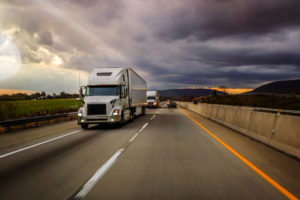By Peter Leroe-Munoz and Ariel Wolf, The Mercury News
The supply chain crisis is part of daily life for California’s consumers and businesses. In the Bay Area, prices increased 1.5% this spring — and 5% over the past year. Customers know to expect a long delay on purchases, and restaurants are reworking menus to accommodate rising food prices (up 10% from last year). With diesel averaging $6.51 per gallon, fuel costs are being passed along to the consumer in surcharges and higher prices.
There are a lot of reasons for today’s inflation and supply chain dilemmas, but one stands out: The number of truck drivers can’t keep up with demand. And it’s expected to get even worse. As Gov. Gavin Newsom and California lawmakers consider all opportunities to keep the supply chain running and get prices down, it’s time for the Golden State to support autonomous trucks as a medium-term solution for a long-term problem. First and foremost, the Newsom administration should initiate the Department of Motor Vehicles (DMV) rulemaking to allow autonomous trucks to test and deploy.
The truck driver shortage was a problem long before the pandemic. The American Trucking Association estimates the country is short 80,000 drivers, and this shortage is expected to double to 160,000 by 2030. The industry also faces extremely high turnover rates. For both new entrants and those considering retirement, the burden of long, stressful hours spent away from their families outweighs the allure of a decent-paying long-haul job. Truck drivers face higher-than-average rates of obesity, smoking, high blood pressure and diabetes.
Autonomous trucks are poised to be active partners with drivers, backfilling the need for long-haul drivers while fostering short-haul jobs that alleviate the heavy physical and mental tolls of long-haul driving. A new study found that autonomous trucks can contribute at least $6.5 billion to California’s economy, while adding approximately 2,400 jobs, increasing output without necessitating mass layoffs of the state’s truck drivers. Many companies already are based in the Golden State. California’s talent is building the innovations of the future while supporting their local economies in areas such as the Bay Area, Los Angeles and San Diego.
Autonomous trucking already has created thousands of high-paying jobs in neighboring states — vehicle operators, maintenance workers, technicians, engineers and more — and the sector’s growth will require more hires. The successful partnership of human-driven and autonomous trucks was confirmed by a study from the Department of Transportation projecting the technology will create up to 35,100 jobs per year, raise wages for all workers and spur $111 billion in investment.
This technology also presents an array of environmental benefits. Autonomous trucks can stay away from crowded urban areas during rush hour and reduce congestion, because they’re not limited to a human driver’s schedule. With optimized driving, they can reduce fuel consumption by at least 10%. By never getting distracted or needing to stop for rest, autonomous trucks can cut days off cross-country long-haul trips. Removing these limitations from the industry can keep supply chains at peak efficiency, which means on-time deliveries for groceries, goods on shelves, critical medical supplies plus more happy customers across the state.
Unfortunately, until a rulemaking is enacted in California, none of these benefits or efficiencies can arrive. In 2012, the Legislature directed the California DMV to create rules for autonomous vehicles. Yet a decade later, autonomous trucks are still explicitly prohibited from testing in the state. The Newsom administration should act now to start the rulemaking and adopt regulations allowing for the testing and deployment of autonomous trucks.
Truck drivers are working hard, but the shortage is simply unsustainable. Already frustrated with rising prices and product shortages, California cannot afford to rely solely on stopgap, short-term measures to reinforce our supply chain in the long term. The Golden State needs to move forward on autonomous trucks so goods can keep moving.
Peter Leroe-Muñoz is the Silicon Valley Leadership Group general counsel and senior vice president of technology and innovation. Ariel Wolf is counsel for the California Alliance for Freight Innovation.

